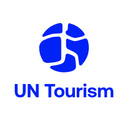Mexico’s Yucatán State Joins the UNWTO Network of Sustainable Tourism Observatories
UNWTO has welcomed Yucatán’s Tourism Observatory into its International Network of Sustainable Tourism Observatories (INSTO).
The Yucatán Tourism Observatory was established in 2018 to generate and manage information around tourism development. This work has identified key challenges and opportunities and so led to the design of relevant policies aimed at supporting the destination’s overall sustainable development, thereby increasing its competitiveness. Joining the INSTO Network will help Yucatán manage tourism development in a responsible and sustainable manner, taking a holistic view in developing adequate and innovative strategies for “rethinking” tourism.
UNWTO Secretary-General Zurab Pololikashvili said: In this time of rethinking tourism, measurement is increasingly important as it provides a better understanding of where a destination stands and where it wants to go. The INSTO network provides an opportunity to work together to ensure that tourism is a tool that contributes to sustainable development. We are very pleased to welcome Yucatán as a new member.
Green and sustainable future plans for Yucatán´s tourism
Yucatán is home to the Maya, has an extensive coastline, is mostly covered by forests, jungles and has numerous cenotes, sinkholes created by collapsed limestone rocks that expose groundwater. This and other tourism resources attracted 2.1 million overnight tourists in 2019, two-thirds of them domestic tourists. Tourism GDP accounts for 11,1% of Yucatán’s overall GDP. According to the vision of the Secretariat of Tourism of the State of Yucatán (SEFOTUR) In 2030 tourism is widely recognized as a key sector that benefits Yucatán society, and to conduct tourism development in consensus with industry actors and with a full insertion of society in the benefits of tourism
. Among the environmental priorities climate action, ecosystem restoration and conservation, water quality preservation, and sustainable energy supply are cited, as well as the need to create a culture of sustainability within Yucatán society.
Yucatan's Secretary of Tourism, Michelle Fridman Hirsch, noted: We are very pleased to have been enrolled in the UNWTO's INSTO network, as we become the second Observatory in Mexico to be part of this network, which will allow us to better evaluate the impact of tourism in Yucatan and contribute with better data to global sustainable tourism
.
Yucatán’s Tourism Observatory will monitor the 11 mandatory INSTO key areas for tourism sustainability: tourism seasonality, employment, economic benefits of the destination, energy management, water management, wastewater management, solid waste management, climate action, accessibility, local satisfaction and governance.
About INSTO
The UNWTO International Network of Sustainable Tourism Observatories (INSTO) was created in 2004 with the main objectives to support the continuous improvement of sustainability and resilience in the tourism sector through systematic, timely and regular monitoring of tourism performance and to connect dedicated destinations, helping them to exchange and improve knowledge and understanding about destination-wide resource use and the responsible management of tourism.
RELATED LINKS
- UNWTO International Network of Sustainable Tourism Observatories
- INSTO Yucatan Website
- Yucatan Sustainable Tourism Observatory (YSTO)
- Secretariat of Tourism of Yucatan (SEFOTUR)
- Yucatan Tourism Promotion Website
About UN Tourism
The World Tourism Organization (UN Tourism) is the United Nations agency responsible for the promotion of responsible, sustainable and universally accessible tourism.
As the leading international organization in the field of tourism, UN Tourism promotes tourism as a driver of economic growth, inclusive development and environmental sustainability and offers leadership and support to the sector in advancing knowledge and tourism policies worldwide.
Our Priorities
Mainstreaming tourism in the global agenda: Advocating the value of tourism as a driver of socio-economic growth and development, its inclusion as a priority in national and international policies and the need to create a level playing field for the sector to develop and prosper.
Promoting sustainable tourism development: Supporting sustainable tourism policies and practices: policies which make optimal use of environmental resources, respect the socio-cultural authenticity of host communities and provide socio-economic benefits for all.
Fostering knowledge, education and capacity building: Supporting countries to assess and address their needs in education and training, as well as providing networks for knowledge creation and exchange.
Improving tourism competitiveness: Improving UN Tourism Members' competitiveness through knowledge creation and exchange, human resources development and the promotion of excellence in areas such as policy planning, statistics and market trends, sustainable tourism development, marketing and promotion, product development and risk and crisis management.
Advancing tourism's contribution to poverty reduction and development: Maximizing the contribution of tourism to poverty reduction and achieving the SDGs by making tourism work as a tool for development and promoting the inclusion of tourism in the development agenda.
Building partnerships: Engaging with the private sector, regional and local tourism organizations, academia and research institutions, civil society and the UN system to build a more sustainable, responsible and competitive tourism sector.
Our Structure
Members: An intergovernmental organization, UN Tourism has 160 Member States, 6 Associate Members, 2 Observers and over 500 Affiliate Members.
Organs: The General Assembly is the supreme organ of the Organization. The Executive Council take all measures, in consultation with the Secretary-General, for the implementation of the decisions and recommendations of the General Assembly and reports to the Assembly.
Secretariat: UN Tourism headquarters are based in Madrid, Spain. The Secretariat is led by the Secretary-General and organized into departments covering issues such as sustainability, education, tourism trends and marketing, sustainable development, statistics and the Tourism Satellite Account (TSA), destination management, ethics and risk and crisis management. The Technical Cooperation and Silk Road Department carries out development projects in over 100 countries worldwide, while the Regional Departments for Africa, the Americas, Asia and the Pacific, Europe and the Middle East serve as the link between UN Tourism and its 160 Member States. The Affiliate Members Department represents UN Tourism's 500 plus Affiliate members.
UN Tourism Communications Department
+34 91 567 8100
UN Tourism
